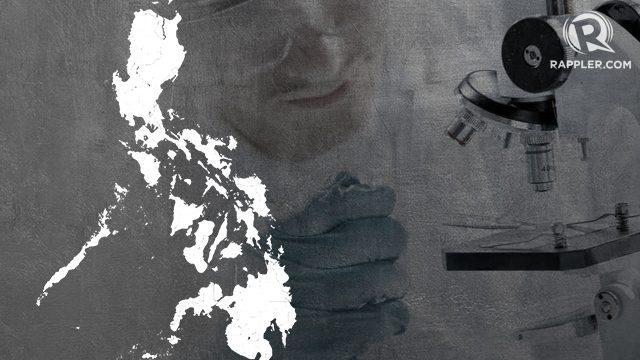SUMMARY
This is AI generated summarization, which may have errors. For context, always refer to the full article.


MANILA, Philippines – President Rodrigo Duterte signed into law a measure providing incentives and assistance to returning Filipino experts, scientists, inventors, and engineers.
Duterte signed Republic Act No. 11035 or the Balik Scientist Act, after the Senate and the House of Representatives ratified the final version in March.
Senator Paolo Benigno Aquino IV, principal sponsor and author of the measure, welcomed the passage of the law, saying it would also address the country’s lack of scientists.
“Matutugunan din ng batas na ito ang kakulangan ng bansa sa scientists, upang makasabay na tayo sa ating mga kapitbahay sa Asya na mas marami ang nagtatrabaho sa research and development,” Aquino said in a statement on Thursday, June 21.
(This law will address the lack of scientists in the country, so we can catch up with our Asian neighbors, which has more people working for research and development.)
During the Senate hearings, it was discovered that the country has only 189 scientists per million, when the ideal ratio is 380 scientists per million.
Aquino pointed out that the Philippines trails South Korea and the United States, which have 5,300 and 3,500 scientists per million, respectively. Malaysia, for its part, has 2,000 scientists per million. (READ: 5 things to make PH a better place for scientists)
Key provisions
Under the law, the Department of Science and Technology (DOST) will be the main implementing agency.
According to the DOST, a returning scientist can enjoy various forms of compensation, such as:
- tax and duty exemptions in the importation of professional equipment and materials
- free medical and accident insurance covering the award period
- reimbursement of expenses for baggage related to scientific projects
- exemption from “renouncing their oath of allegiance to the country where they took the oath”
- participation in the DOST’s Grants-in-Aid research and development
- special working and non-working visas and DOST-subsidized visa application
- round-trip airfare from a foreign country to the Philippines
- exemption from local travel tax
They can also avail of relocation benefits, such as support in securing job opportunities for the spouse and in admitting children into preferred schools, monthly housing or accommodation allowance, and funding for the establishment and development of a facility or laboratory.
Science and Technology Assistant Secretary Teodoro Gatchalian earlier said that the current funding for the Balik Scientist program would increase significantly with the law’s passage. The DOST had a budget of P25 million for the program in 2017. (READ: Making policy decisions on the Philippine scientific enterprise system)
The Balik Scientist program under the DOST was first established in 1975 through Presidential Decree No. 819 under the administration of former president Ferdinand Marcos. But it was only implemented until 1986.
Former president Fidel Ramos revived the program in 1993 and put it under the DOST through Executive Order No. 130.
– Rappler.com
Add a comment
How does this make you feel?
There are no comments yet. Add your comment to start the conversation.